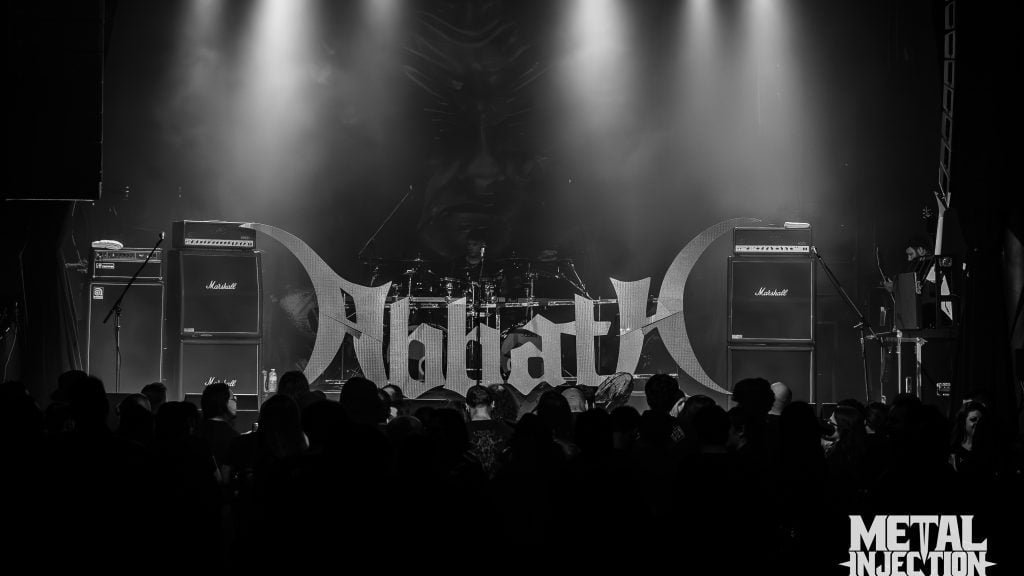
‘Not all grassroots venues are struggling’: Sheffield’s Leadmill may be closing, but the city’s DIY hubs are thriving
‘I’ll never set foot in this venue again,” Richard Hawley proclaimed from the Leadmill stage last week, as he bowed out with his final shows there. Hawley first played the much-loved Sheffield music venue in 1984, four years after it opened in 1980. This week, it’s closing its doors – at least in its current incarnation. Miles Kane will give the final performance on Friday. “I feel honoured to be closing it,” says Kane. “It’s the end of an era and we have got to do it justice.”
While these closing gigs indicate a venue going out on a triumphant high, there’s no ignoring the fact that the end of the Leadmill has been clouded by a hugely acrimonious, bitter, prolonged fight and accompanying legal battle – one that isn’t as clearcut as some headlines around the crisis facing Britain’s small venues.
In March 2022, the Leadmill was served an eviction notice by its landlords Electric Group, a company owned by Dominic Madden, which also operates multiple venues across the UK such as Electric Brixton and NX Newcastle. Madden bought the building that houses the Leadmill in 2017 and later announced plans to continue operating it as a new, refurbished, music venue.
The initial story, and reaction, was of the big bully London landlord coming to Sheffield to boot out a beloved institution and trade off its hard-earned success. Many people, such as Hawley, still passionately feel this is the case. He has described the process as simply “theft”.
The Leadmill ran a campaign called “The battle for the soul of Sheffield”, stating: “If we don’t stop this hostile takeover, the very soul and character of our great city is at risk.” There have been many angry and inflammatory exchanges ever since. The Leadmill’s director, Phil Mills, even applied for permission to demolish part of the building before having to vacate. The Leadmill did not respond to multiple requests for comment and Madden said he would only speak off the record.
The campaign prompted support from Pulp frontman Jarvis Cocker – “they may own the bricks and mortar, but they don’t own the spirit of the Leadmill” – and local MP Louise Haigh, who described it as “devastating”. But the story has transpired to be much more knotty and complex – largely revealed in superb reporting by Victoria Munro of the Sheffield Tribune.
When the Leadmill opened in the 1980s, the venue was a multi-arts co-op that was rooted in social and political issues and intended to help address sharply rising youth unemployment in the city. It later became a charity and by the 1990s, with Mills at the helm, was turned into a for-profit business. Some argue this professionalised the venue and made it the success and cultural touchstone it is today. Others feel that it killed the original spirit of the place and was akin to what Electric Group are doing today. One of the original founders, Chris Andrews, has publicly wished bankruptcy on Mills during the legal dispute.
The Leadmill finally lost their appeal for eviction and are now due to vacate the premises. To hit home just how messy the narrative has become, Kane was unaware, in our interview, that it was even continuing as a music venue. Many locals are understandably mourning the loss of a name and sense of place that holds a lot of memories and formative experiences for them – even if perhaps not everyone is reliably informed about what exactly will come next.
Which is somewhat understandable. Concrete plans and dates for the new venue are not yet public but the building is going to have a refurbishment estimated at a cost of around £2-3m that Madden initially said “will be a slightly more polished, probably modernised, version of the same thing”. Later, after tensions had flared and he had been accused of benefiting from the Leadmill’s reputation, he stressed that he was “going to do something very different”. The Leadmill, as a promoter, still has pre-existing bookings stretching to spring 2026, which have been moved to other Sheffield venues.
But the idea that Sheffield’s independent music soul is being ripped out as a result of the Leadmill furore overshadows the city’s thriving DIY music culture – something that should be held up as an antidote to the small venues crisis. “It’s as strong as I’ve known it for a long time,” says Paul Tuffs, who runs Sidney & Matilda, an independent venue with three gig rooms varying from 80-250 capacity. “It’s not all doom and gloom.”

The city has always struggled with mid-sized venues. “There’s a bit of a ceiling in Sheffield,” says Tuffs. “We miss that 500–900 space. If you go to Leeds, there’s probably half a dozen. Manchester is the same.” It’s frustrating – although there are more gigs popping up at the 500-cap Crookes Social Club – but in its place has blossomed a genuinely thriving and diverse collection of smaller venues and DIY spaces with strong identities.
Gut Level is a queer-led event space and collective that leans towards dance music. Delicious Clam is the kind of place you’ll find Crack Cloud or Hotline TNT playing before they blow up. The Lughole is a mecca for punk and hardcore; Hatch is a haven for experimental goings on, while promoters Sonido Polifonico regularly use a 1500s Tudor building, Bishops’ House, for intimate shows. There’s also a £7m council-funded venue, Events Central, due to open next year. Then throw in Alder, Hagglers Corner, Dryad Works, Plot 22, Yellow Arch, the Greystones, Network, plus independent music festivals such No Bounds, Get Together, Float Along, and Sensoria, and what Sheffield has is a healthy, vibrant and staunchly independent network.
A genuine community has sprung from this. “We’ve started a network of independent venues to get together and help each other,” says Gut Level’s Katie Matthews. “It’s about moving away from the idea that all grassroots venues are struggling. It’s not really a good message to put out there – it’s quite depressing.” Gut Level is a members’ club and has a total of about 5,000, with roughly 600 paying monthly – a remarkable feat for a venue that has only been in its current location and iteration for a year.
after newsletter promotion

“For a long time nobody has really been arsed about us, unlike in other cities where you might get a lot of development and investment,” says Matthews. “But it means that we’ve just been left alone and so the people of Sheffield have created things for the other people of Sheffield. There is a real grassroots spirit. Maybe in a different city you’d have one space that has different nights – but we have these micro clubs that all have their own different flavours.”
For Nick Potter, often found manically pinballing around audiences in a wedding dress as the frontperson of experimental rock band Dearthworms, this has resulted in a key cultural attitude. “It’s almost like an anti-growth argument in a way,” he suggests. “It shows you can have something that’s really healthy and beneficial but it doesn’t have to be vastly successful and constantly growing and getting bigger. Plus, these places are cheaper.”
To Potter’s point, if you head to Sheffield City Hall – recently taken over by ASM Global, the world’s largest venue management company – you’ll now pay £8.25 for a pint of mass-produced beer. At Delicious Clam it’s £4.50 for a pint from a local brewery.
If there’s one person who understands the huge significance in embracing and celebrating the smaller end of music venues in Sheffield, it’s Tuffs, who has been putting on gigs in the city since his days working at the Grapes back in the early 2000s. The small Irish pub utilised its upstairs function room for gigs, including the first ever show by Arctic Monkeys. “It’s important to treasure these sacred places,” he says. “They’re the lifeblood of the city in many ways. Without places like this, the story of Sheffield would be a lot shorter. And a lot more boring.”
And so as the Leadmill winds up its heroic 45-year run, there is no denying its vastly important role in the history of music in the city, or people’s sadness at the end of an era. But if you’re searching for the independent soul of Sheffield music in its wake: you really don’t have far to look at all.




